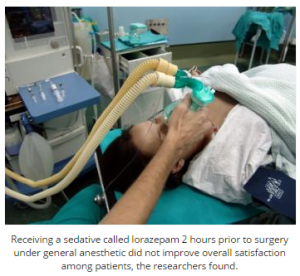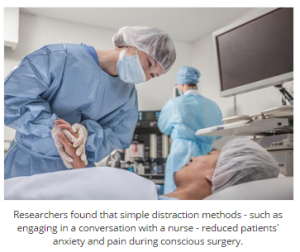John E. Brock, DDS, is a seasoned oral and maxillofacial surgeon currently practicing at Mountain State Maxillofacial Surgeons in Charleston, West Virginia. Dr. John Brock holds 19 years of expertise in laser and facial cosmetic surgery, reconstruction of severe facial injuries and deformities, and surgery to correct congenital facial deformities. He also boasts an impressive military background with the United States Army in his role as Chief of Maxillofacial Surgery at Martin Army Hospital in Fort Wainwright, Alaska. Moreover, he acted as Commander of the 53rd Head and Neck Surgical Team in support of Operation Iraqi Freedom. Dr. John Brock completed his military service with the rank of Major. He is also affiliated with Raleigh General Hospital in Beckley, WV, and is on staff at The Facial Center in Teays Valley and Charleston, WV. He attributes his success to good mentors and family support. For more information about John E. Brock, DDS, please visit https://www.mtstateoms.com/john-brock-dds/.
Press Release: John Brock, DDS
 Get to know Oral and Maxillofacial Surgeon Dr. John Brock, who serves the population of Charleston, WV.
Get to know Oral and Maxillofacial Surgeon Dr. John Brock, who serves the population of Charleston, WV.
Dr. Brock is am oral and maxillofacial surgeon at Mountain State Oral and Maxillofacial Surgeons in Charleston, WV and is affiliated with St. Mary’s Hospital and Charleston Area Medical. With over 11 years of experience, he specializes in rhinoplasties, facelifts, and maxillofacial surgery. Educated at West Virginia University, Dr. Brock completed an internship and residency at University of Florida and a fellowship at Ruby Memorial Hospital. He is board certified by the American Board of Oral and Maxillofacial Surgery and the American Board of Laser Surgery and is a professional member of the American Academy of Cosmetic Surgery, American College of Oral and Maxillofacial Surgery, American Society for Laser Medicine and Surgery, American Association of Oral and Maxillofacial Surgeons, and the International Society of Dental Implantology.
FindATopDoc Profile: John Brock, DDS
 John Brock, DDS, obtained his Doctor of Dental Surgery Degree from the West Virginia University in 2001, followed by his general surgery internship and residency in oral and maxillofacial surgery at the University of Florida. He continued to complete his fellowship in Anesthesiology at the Ruby Memorial Hospital at West Virginia University in Morgantown. Dr. John Brock is board certified by the American Board of Oral and Maxillofacial Surgery and board eligible with the American Board of Laser Surgery. He member of the American Academy of Cosmetic Surgery, American Association of Oral and Maxillofacial Surgeons, American College of Oral and Maxillofacial Surgery, International Society of Dental Implantology, and American Society for Laser Medicine and Surgery. In his free time, he enjoys fishing and skeet shooting. For more information about John Brock, DDS, please visit https://www.findatopdoc.com/doctor/8125647-John-Brock-Oral-and-Maxillofacial-Surgeon.
John Brock, DDS, obtained his Doctor of Dental Surgery Degree from the West Virginia University in 2001, followed by his general surgery internship and residency in oral and maxillofacial surgery at the University of Florida. He continued to complete his fellowship in Anesthesiology at the Ruby Memorial Hospital at West Virginia University in Morgantown. Dr. John Brock is board certified by the American Board of Oral and Maxillofacial Surgery and board eligible with the American Board of Laser Surgery. He member of the American Academy of Cosmetic Surgery, American Association of Oral and Maxillofacial Surgeons, American College of Oral and Maxillofacial Surgery, International Society of Dental Implantology, and American Society for Laser Medicine and Surgery. In his free time, he enjoys fishing and skeet shooting. For more information about John Brock, DDS, please visit https://www.findatopdoc.com/doctor/8125647-John-Brock-Oral-and-Maxillofacial-Surgeon.
Breast implants could become safer thanks to cell-friendly surface
 Scientists at The University of Manchester have created an enhanced surface for silicone breast implants which could reduce complications and make them less likely to be rejected by the body.In the US alone almost 400,000 cosmetic breast augmentations and reconstructions are carried out each year, and the number is growing. Some of these cases are for reconstruction after surgery for breast cancer and can have important psychological benefits.However, around one in five people who has a breast implant suffers from capsular contracture where scar tissue forms and can shrink after the surgery – causing pain, deformity and the need for further surgery. Fluid from the body can also build up, (known as a seroma) and the scar tissue can also cause leaks in the implants.
Scientists at The University of Manchester have created an enhanced surface for silicone breast implants which could reduce complications and make them less likely to be rejected by the body.In the US alone almost 400,000 cosmetic breast augmentations and reconstructions are carried out each year, and the number is growing. Some of these cases are for reconstruction after surgery for breast cancer and can have important psychological benefits.However, around one in five people who has a breast implant suffers from capsular contracture where scar tissue forms and can shrink after the surgery – causing pain, deformity and the need for further surgery. Fluid from the body can also build up, (known as a seroma) and the scar tissue can also cause leaks in the implants.
Read the rest of the article at http://www.medicalnewstoday.com/releases/291158.php.
Patients may not benefit from sedatives prior to surgery, study suggests
 Prior to undergoing a surgical procedure, many patients are prescribed sedatives to help reduce stress and anxiety before and after surgery. But a new study published inJAMA has questioned the benefits of these sedatives after finding they may not improve patients’ experience and may even do more harm than good.Benzodiazepines are a class of drugs commonly used to help reduce a patient’s perioperative stress or anxiety – the stress and anxiety experienced before and after surgery.However, the study researchers – including Dr. Axel Maurice-Szamburski of the Hôpital de la Timone Adulte in Marseille, France – note that benzodiazepines have been associated with a number of side effects, including drowsiness, insomnia and cognitive impairment.While benzodiazepines are deemed effective for reducing anxiety, the researchers note there is insufficient evidence to conclude their use leads to a better perioperative experience for patients.
Prior to undergoing a surgical procedure, many patients are prescribed sedatives to help reduce stress and anxiety before and after surgery. But a new study published inJAMA has questioned the benefits of these sedatives after finding they may not improve patients’ experience and may even do more harm than good.Benzodiazepines are a class of drugs commonly used to help reduce a patient’s perioperative stress or anxiety – the stress and anxiety experienced before and after surgery.However, the study researchers – including Dr. Axel Maurice-Szamburski of the Hôpital de la Timone Adulte in Marseille, France – note that benzodiazepines have been associated with a number of side effects, including drowsiness, insomnia and cognitive impairment.While benzodiazepines are deemed effective for reducing anxiety, the researchers note there is insufficient evidence to conclude their use leads to a better perioperative experience for patients.Facelift surgery after massive weight loss poses challenges, reports Plastic and Reconstructive Surgery
 Authors outline their approach to facelift in bariatric surgery patientsPatients undergoing bariatric surgery for severe obesity are often left with excess, sagging skin affecting all areas of the body–including the face. The unique challenges of facelift surgery in this group of patients–and effective techniques for addressing them–are presented in a paper in the February issue of Plastic and Reconstructive Surgery®, the official medical journal of the American Society of Plastic Surgeons (ASPS).Kailash Narasimhan, MD, and colleagues of University of Texas Southwestern Medical Center, Dallas, outline their approach to facelift surgery in patients who have lost 100 pounds or more after bariatric surgery. “In the massive weight loss population there are common techniques which we feel can enhance results in these patients,” the researchers write. Rod J. Rohrich, MD, Editor-in-Chief of Plastic and Reconstructive Surgery, is a co-author of the new study.Unique Challenges of Facelift Surgery after Massive Weight Loss
Authors outline their approach to facelift in bariatric surgery patientsPatients undergoing bariatric surgery for severe obesity are often left with excess, sagging skin affecting all areas of the body–including the face. The unique challenges of facelift surgery in this group of patients–and effective techniques for addressing them–are presented in a paper in the February issue of Plastic and Reconstructive Surgery®, the official medical journal of the American Society of Plastic Surgeons (ASPS).Kailash Narasimhan, MD, and colleagues of University of Texas Southwestern Medical Center, Dallas, outline their approach to facelift surgery in patients who have lost 100 pounds or more after bariatric surgery. “In the massive weight loss population there are common techniques which we feel can enhance results in these patients,” the researchers write. Rod J. Rohrich, MD, Editor-in-Chief of Plastic and Reconstructive Surgery, is a co-author of the new study.Unique Challenges of Facelift Surgery after Massive Weight Loss
Read the rest of the article at http://www.medicalnewstoday.com/releases/288742.php.
Distraction techniques may reduce pain, anxiety during conscious surgery
 For some surgical procedures – such as the removal of varicose veins – the patient remains awake. Though safe, the patient can experience some pain and anxiety. But in a new study, researchers from the University of Surrey in the UK say simple methods of distraction could help ease such experiences.To reach their findings, published in the European Journal of Pain, Prof. Jane Ogden and colleagues enrolled 398 patients who were due to undergo varicose veinsurgery.For this type of surgery, patients typically remain awake, receiving only a local anesthetic.The researchers note that previously, patients have reported unfamiliar feelings, sounds and smells during the procedure. Some have also reported feeling a burning sensation, while others have said listening to conversations about the procedure between the surgeon and nurse makes them feel uneasy. Patients have also reported feeling anxious during the surgery.
For some surgical procedures – such as the removal of varicose veins – the patient remains awake. Though safe, the patient can experience some pain and anxiety. But in a new study, researchers from the University of Surrey in the UK say simple methods of distraction could help ease such experiences.To reach their findings, published in the European Journal of Pain, Prof. Jane Ogden and colleagues enrolled 398 patients who were due to undergo varicose veinsurgery.For this type of surgery, patients typically remain awake, receiving only a local anesthetic.The researchers note that previously, patients have reported unfamiliar feelings, sounds and smells during the procedure. Some have also reported feeling a burning sensation, while others have said listening to conversations about the procedure between the surgeon and nurse makes them feel uneasy. Patients have also reported feeling anxious during the surgery.
Read the rest of the article at http://www.medicalnewstoday.com/articles/288755.php
The Royal College of Anaesthetists calls for joined up care for high risk surgical patients
The Royal College of Anaesthetists (RCoA) shared its vision for the future of perioperative healthcare provision across the UK. Speaking at a stakeholder event, President of the RCoA Dr J-P van Besouw said: “With more than ten million patients undergoing surgery each year in the NHS, approximately 15% of whom are deemed to be high-risk, a care pathway that can harness multi-disciplinary working, reduce variation and improve patient outcomes must be our goal.”
Health experts, including Celia Ingham Clark, Director for Reducing Premature Mortality, NHS England, highlighted the scale of the unmet need for the high-risk surgical patient and the future principles for a more efficient and effective care pathway, at the event attended by a cross section of health bodies.
J-P van Besouw said: “Lowering the rate of avoidable harm – associated with many preventable complications and deaths – will make a significant saving to the NHS annual surgical bill, which at present runs at around GBP16 billion. The College believes that improved perioperative care is an efficient and effective solution.”
Read more:
Complications after thigh lift surgery common, but usually minor, reports Plastic and Reconstructive Surgery
Performed as part of body contouring procedures in patients with massive weight loss, a procedure called medial thigh lift carries a substantial risk of complications, reports a study in the January issue of Plastic and Reconstructive Surgery®, the official medical journal of the American Society of Plastic Surgeons (ASPS).
“Wound complications in medial thighplasty are common, but most are minor and can be managed without reoperation,” according to the new research by ASPS member surgeon, Dr. Jeffrey Adam Gusenoff and colleagues of University of Pittsburgh. The study is the first detailed look at complications after thigh lift surgery, performed as part of body contouring surgery after bariatric (weight reduction) surgery.
After Thigh Lift, Most Patients Have Mild Complications
Dr Gusenoff and coauthors analyzed their experience with medial thigh lift in 106 patients with massive weight loss, mainly after bariatric surgery. The patients were 90 women and 16 men, average age 45 years. Most patients undergoing bariatric surgery for severe obesity are left with excess, sagging skin folds of the thigh and other areas.
Overall, 68 percent of patients experienced some type of complication after thigh lift surgery. The complication rate varied with the extensiveness of surgery: from 43 percent for patients undergoing the least-extensive “horizontal thighplasty,” to 64 percent with an intermediate “short-scar thighplasty,” to 74 percent with the most-extensive “full-length vertical thighplasty.”
But while complications were frequent, they usually weren’t serious. The most common issues were minor wound healing problems: problems with wound closure (dehiscence) and fluid collections (seromas). Most of these were managed without any further surgery.
Six percent of patients had complications requiring additional surgery. Another 14 percent underwent further surgery to improve their cosmetic results.



